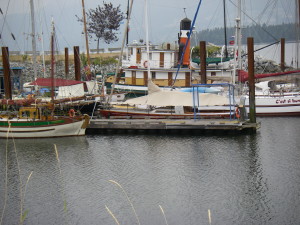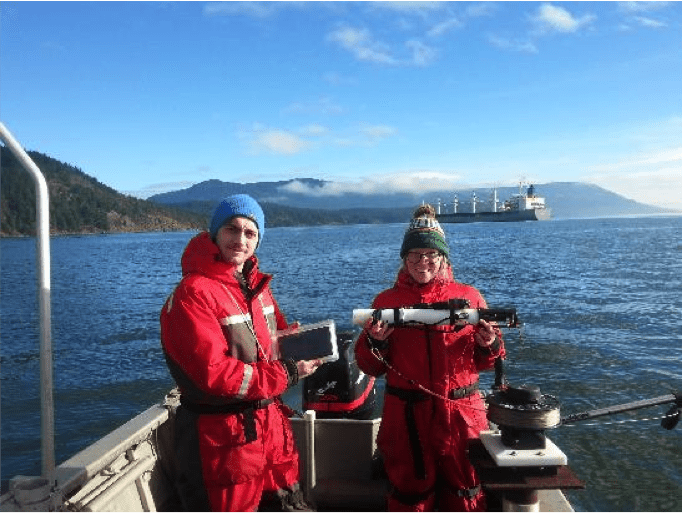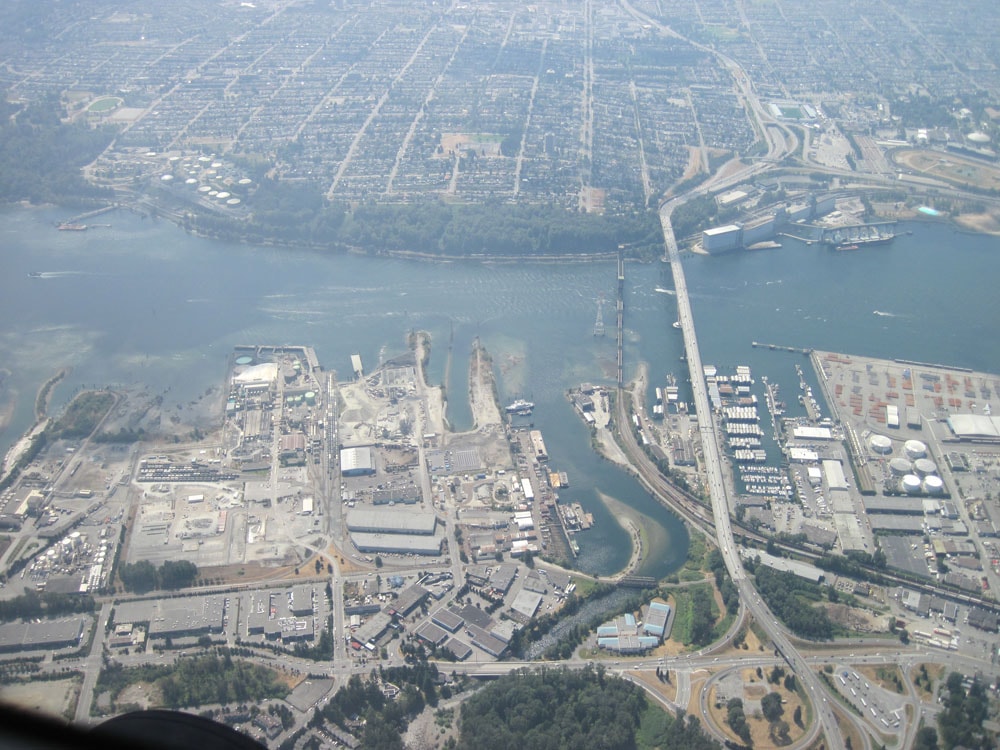people
Human development across the Georgia basin has seen large changes in population size and density in urban centres. Most of the population is centred in the lower mainland and south eastern Vancouver Island with population size in most regional districts and municipalities in the lower mainland having increased by 150% over the past 20 years.
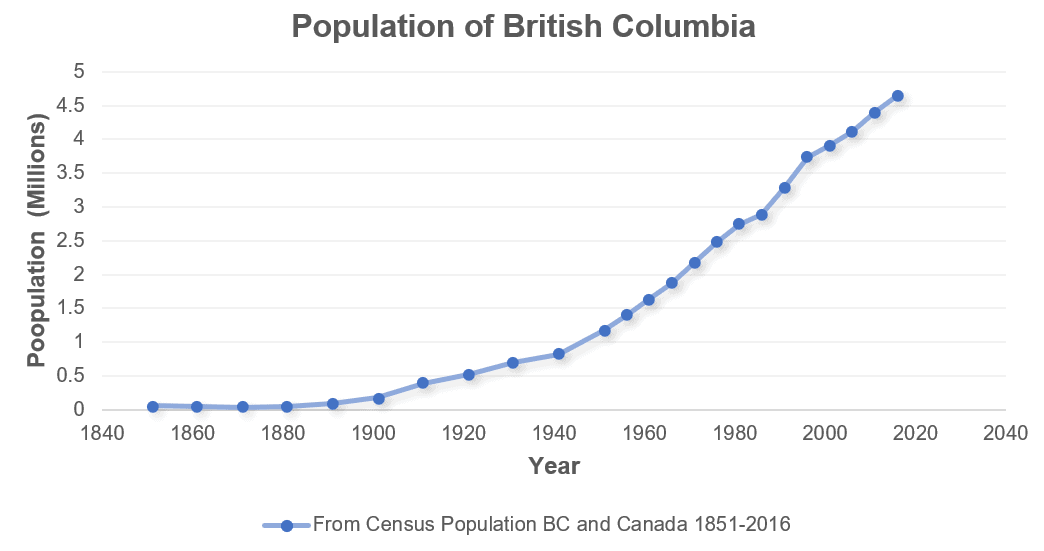
The population of British Columbia is currently at over 4.6 million people (Statistics Canada 2012 census data), with over 86% of this population living in urban areas. 3 million people currently live in Vancouver and Victoria alone and thus most of B.C.’s population is concentrated around the Fraser River and the Strait of Georgia.
Of this total B.C. population, over 196,000 are First Nations people (2006 BC Stats Census).
The Data Centre provides information on population statistics, human impacts in the Strait, activities carried out by humans on the Strait (e.g. fishing, tourism, boat traffic) as well as information on projects and programs carried out by scientists, citizen science groups, stewardship groups and local communities.
Historical Photographs
We are interested in collecting photographs of the Strait, showing change over time. These photographs may be of coastal towns, industrial or human development, fishing activities etc. Please see the Contact Us page and send us an email if you have information to share: or use the Data Submission Form.
Oral History and Traditional Ecological Knowledge
We also recognize the huge value in gathering traditional and historical ecological knowledge and one goal of the SGDC is to collate these vital types of information. See the First Nations page for details of the First Nations Ecological Knowledge Project
Please see the Contact Us page and send us an email if you have information to share.
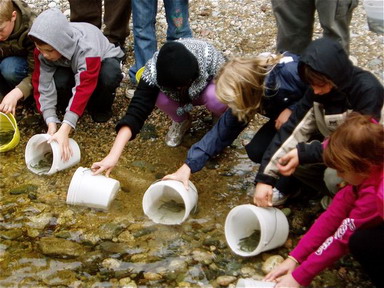
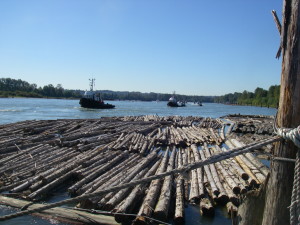
Useful Links
The following are a list of environmental groups involved with the Strait of Georgia:
The David Suzuki Foundation is a science-based environmental organization based out of Vancouver, B.C. The mission of the foundation is to “protect the diversity of nature and our quality of life, now and for the future” and their vision is “that within a generation, Canadians act on the understanding that we are all interconnected and interdependent with nature”. Their main program areas are Protecting Climate, Transforming the Economy, Protecting Nature, Reconnecting with Nature and Building Community.
2. The Coastal Alliance for Aquaculture Reform
This group is focused on the effect of aquaculture on wild salmon.
3. The Fraser Riverkeeper Society
This group focuses on water quality and fish habitat of the Fraser River; it patrols by boat, responds to citizen complaints of pollution, and seeks enforcement of environmental laws.
4. The Georgia Strait Alliance
The GSA is a charity dedicated to protecting and restoring the marine environment, and promoting the sustainability of the Strait and its adjoining waters and communities – including Southern Vancouver Island.
5. The Raincoast Conservation Foundation
The Raincoast Conservation Foundation seeks to investigate and understand coastal species and ecological pressures, and its flagship project is the Wild Salmon Program.
6. The Watershed Watch Salmon Society
This group works to protect and restore B.C.’s wild salmon through scientific expertise, strategic alliances, and community outreach.
Living Oceans Society is a Canadian environmental organization that focuses on marine conservation issues. It is based in Sointula, B.C. Their vision is “Canada’s oceans are sustainably managed and thriving with abundant sea life that supports coastal communities”. They promote ocean planning, marine protected areas, ecosystem based fisheries and risk reduction from oil spills, salmon aquaculture and industrialization.
8. Friends of Tod Creek Watershed
This group works to preserve and enhance the integrity and biodiversity of the Tod Creek Watershed. Prospect Lake and Tod Creek, membership open to all.
Goldstream Nature Houses are the hub of environmental education in Vancouver Island’s Provincial Parks, providing visitors with great interactive learning opportunities and full of helpful volunteers and naturalists.
This group is involved in the conservation of the watersheds of the Saanich Peninsula.
11. SeaChange Marine Conservation Society
SeaChange conserves marine and watershed environments through education and restoration within the Capital Regional District and in partnership with other coastal communities in BC. They also lead ethnobotany tours and offer opportunities to participate in terrestrial restoration at SNIDCEL/Tod Inlet.
12. Sierra Club BC
Sierra Club BC is a non-profit environmental organization whose mission is to protect and conserve British Columbia’s wilderness, species and ecosystems, within the urgent context of global warming impacts. They advocate the responsible use of B.C.’s natural resources while promoting a modern, equitable economy that sustains our planet in every way.
World Fisheries Trust, created in 1995, is a Canadian non-profit organization dedicated to the equitable and sustainable use and conservation of aquatic biodiversity. It acts locally and globally and uses a multidisciplinary approach. They are based out of Victoria, B.C.
14. Nile Creek Enhancement Society
The mission of the Nile Creek Enhancement Society is to “enhance and protect the fresh water and marine habitats that support salmonids and the habitat in which they live along the east coast of Vancouver Island”.
To fulfill their mission, the Nile Creek Enhancement Society is engaged in the volunteer operation of a
- Pink salmon hatchery,
- restoration of habitats supporting native salmonid species, such as Pink, Coho, Chum, and Cutthroat Trout,
- stream rehabilitation,
- kelp replantation,
- eelgrass mapping and monitoring,
- and public education.
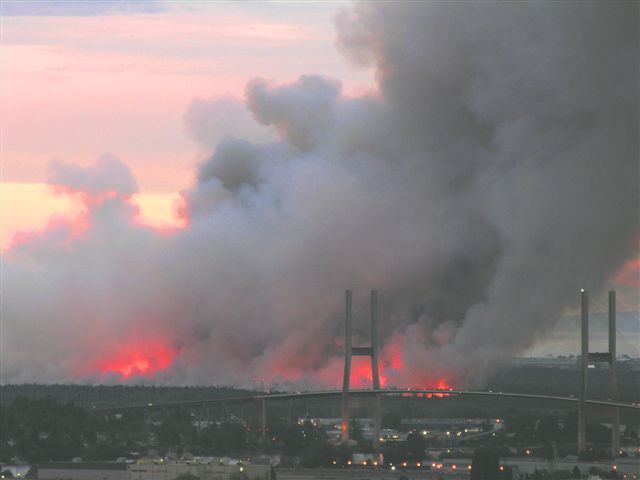
Human Impacts
As population size has increased in this region, there has been increasing pressure put on the environment of the Strait. This is the result of resource extraction and development for housing, forestry, industry, agriculture and… Read more »
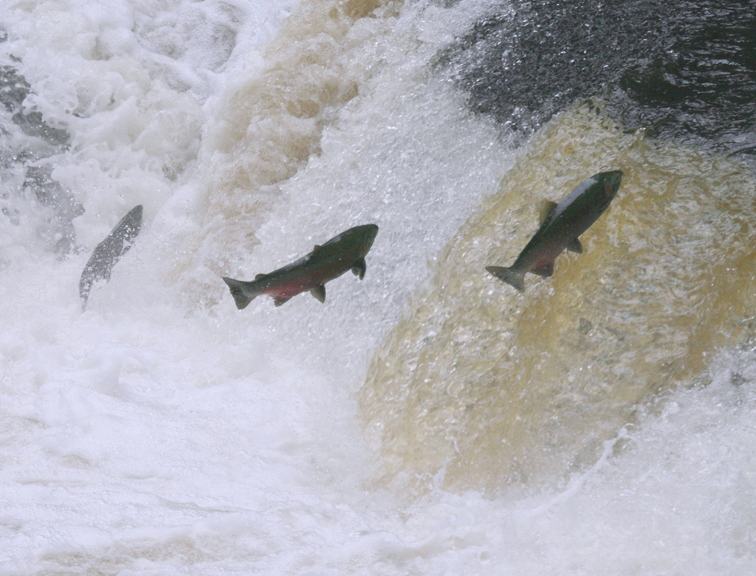
First Nations
First Nations communities have surrounded the Strait of Georgia for thousands of years. Aboriginal peoples have a unique knowledge about our local environment, built and accumulated by the experience of many generations of living in… Read more »

Researchers
Many scientists in government institutions and in academia are carrying out research within the Strait of Georgia. Many of these programs are long term programs, while others last only a few years. Some projects are… Read more »

Citizen Science
Citizen scientists are providing an increasingly valuable role in the collection of data, program planning, education, research and stewardship activities. The term citizen science refers to scientific research carried out, either in whole or in part,… Read more »



